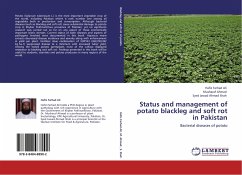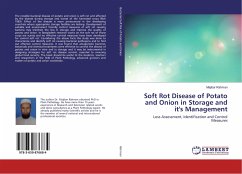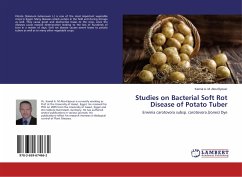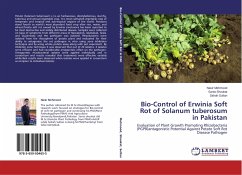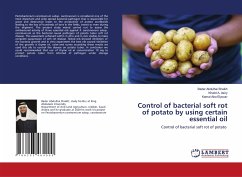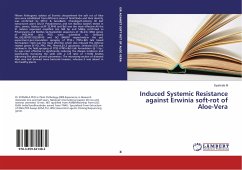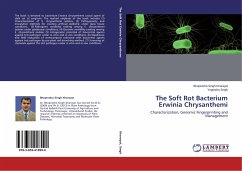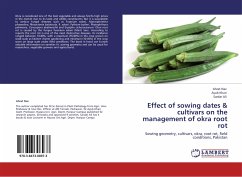Potato (Solanum tuberosum L.) is the most important vegetable crop of the world, including Pakistan where it rank number one among all vegetables both in production and consumption. Although bacterial diseases (such as blackleg and soft rot) cause substantial damage to potato crop in Khyber Pukhtunkhwa provience of Pakistan, yet no significant research was carried out so far on any aspect of these economically important biotic stresses. Current status of both diseases and aspects of pathogens involved were documented in this book. Aqueous neem extracts decreased disease incidence and severity along with enhancement in yield per plant. Fertilizer dose combination of N3P1K3 (262/252/262 kg.ha-1) suppressed disease to a minimum with increased tuber yield. Among the tested potato germplasm, none of the cultivar displayed resistance to blackleg and soft rot. Findings presented in this book will be useful to students, scientists and potato producers in many regions of the world.
Bitte wählen Sie Ihr Anliegen aus.
Rechnungen
Retourenschein anfordern
Bestellstatus
Storno

